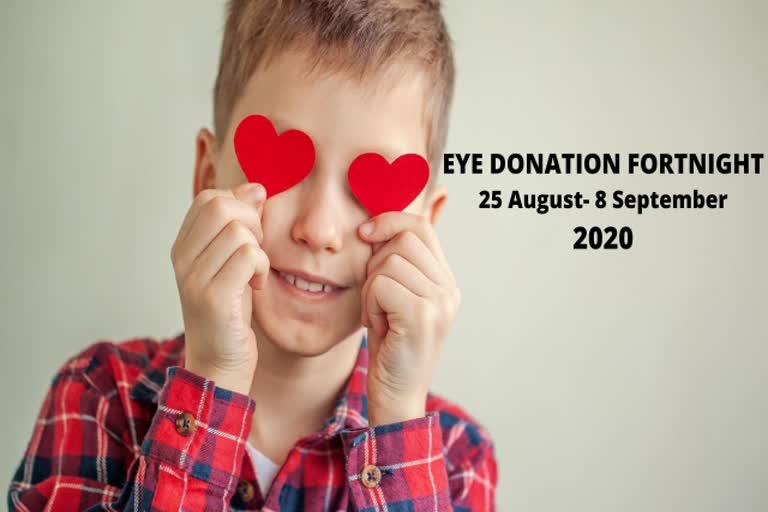Eyes are an integral part of our body, helping us to see things, appreciate nature, and admire beautiful colours in our surroundings. But some people are not as lucky to be blessed with a vision. It can be either due to certain birth defects or unfortunate events taking place later in life. Therefore, this is where a little donation from you can be a blessing to such people.
Every year from 25th August to 8th September, National Eye Donation Fortnight is observed in order to create awareness about the importance of eye donation and to motivate people to pledge to do the same after their death. According to the World Health Organization, corneal diseases (Damage to the tissue covering the front of the eye called the cornea) are among the major causes of vision loss and blindness, after cataract and glaucoma.
According to the National Health Portal of India (NHP), there are various reasons why people don’t come forward for eye donation and lack of awareness is one of them. Others include:
- Insufficient facilities in the institutes and hospitals
- Absence of motivation even among trained personnel
- Social and religious myths
Therefore, here are some common myths, debunked for you!
- I have weak eyesight, so I cannot donate my eyes
Weak eyesight will fortunately not be a barrier in the process of eye donation. People who wear spectacles or lenses for either short or long-sightedness or even those who have gotten their eyes operated can donate their eyes. It includes people of any age, blood group, gender, etc. - I will be born blind in my next birth
No. This is a complete superstition. Donating eyes or any other organs is an act of great charity. Also, in rebirth, it is the soul that is transported to a new body and such deformities won't be carried ahead. - Eye donation will disfigure my face
It won’t. It is commonly the cornea that is removed and not the entire eye. However, in certain cases, a prosthetic may be placed. Hence, it will not leave a hole in the place of eye sockets. - I cannot donate my eyes if I don’t pledge for it
False. Even if one has not pledged for their eye donation when they were alive, a family member can volunteer for the deceased person’s eyes to be donated. - Doctor’s won’t work hard on saving my life
No matter what, doctors are completely dedicated to saving a patient's life at all costs. It is only after the death of the person that their eyes can be donated. - Family of the owner will be charged
This is another misconception. There is no money charged for the donation of the eyes of the deceased person. It is a charitable service. - Doctors will get the money if I donate my eyes
No. buying or selling of a person’s eyes or any other organs is a crime and a punishable offense. There is no money involved in the donation process. - Eye donation is a lengthy procedure
No. Once the respective authorities are informed after the demise of the person, the process will hardly take 15-20 minutes to be completed.
When you will not be able to see the world anymore, someone else might be able to. Therefore, it is the best thing you can do as an act of charity after your death and everyone should be motivated to do so.
